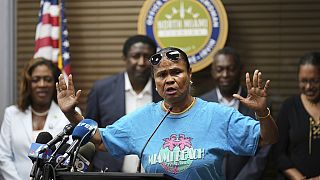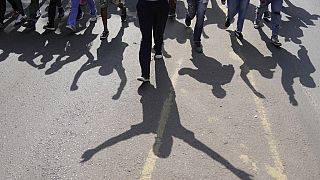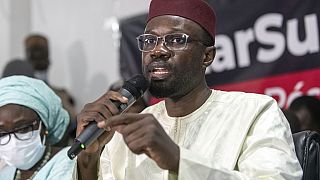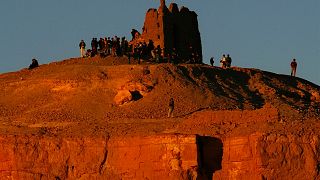USA
President Donald Trump has hosted South African President Cyril Ramaphosa at the White House on Wednesday for a meeting that was somewhat tense despite the jokes and attempts by Ramaphosa to defuse the situation after Trump accused the country’s government of allowing a “genocide” to take place against white Afrikaner farmers, a label that even many of those farmers reject.
Ramaphosa pushed for the meeting with Trump in an attempt to salvage his country’s relationship with the United States, which is at its lowest point since the end of the apartheid system of racial segregation in 1994.
After a reporter asked about allegations that white people are suffering a genocide, Ramaphosa noted that some members of his administration are Afrikaners. "If there was an Afrikaner farmer genocide, I can bet you these three gentlemen would not be here," he said, referring notably to agriculture minister John Henry Steenhuisen.
Trump was however not satisfied, saying there had been reports and documentaries about the issue. He directed his staff to turn down the lights in the Oval Office and play a video on a television that was wheeled into the room. "It's a terrible sight," Trump said. "I've never seen anything like it."
The video showed clips of a radical minority party leader singing the anti-apartheid song "Shoot the Boer", from which the government has distanced itself.
Following the confrontation in the Oval Office, Ramaphosa joined Trump for lunch before leaving the White House.
Asked about the meeting after his departure, the South African president noted that he thought it had gone "very well".












00:59
South Africa, Austria agree to strengthen ties
Go to video
Former South African deputy president David Mabuza dies at 64
01:05
South Africa: year of power marred by new scandal in coalition government
01:11
US pauses military aid to Ukraine over depleted weapons stockpile
Go to video
’Black Empowerment’ law stalls Elon Musk's $113 million investment in SA
Go to video
Looming funding shortfall could reverse global progress against AIDS, warns UNAIDS chief